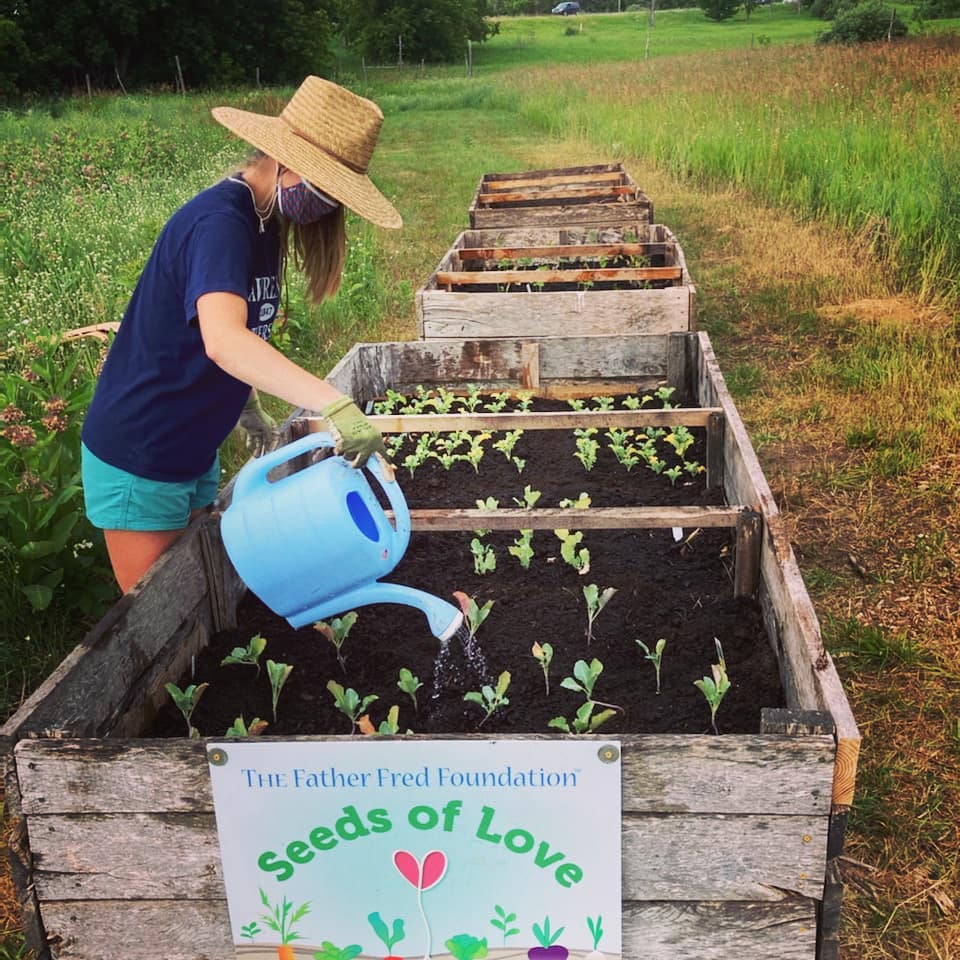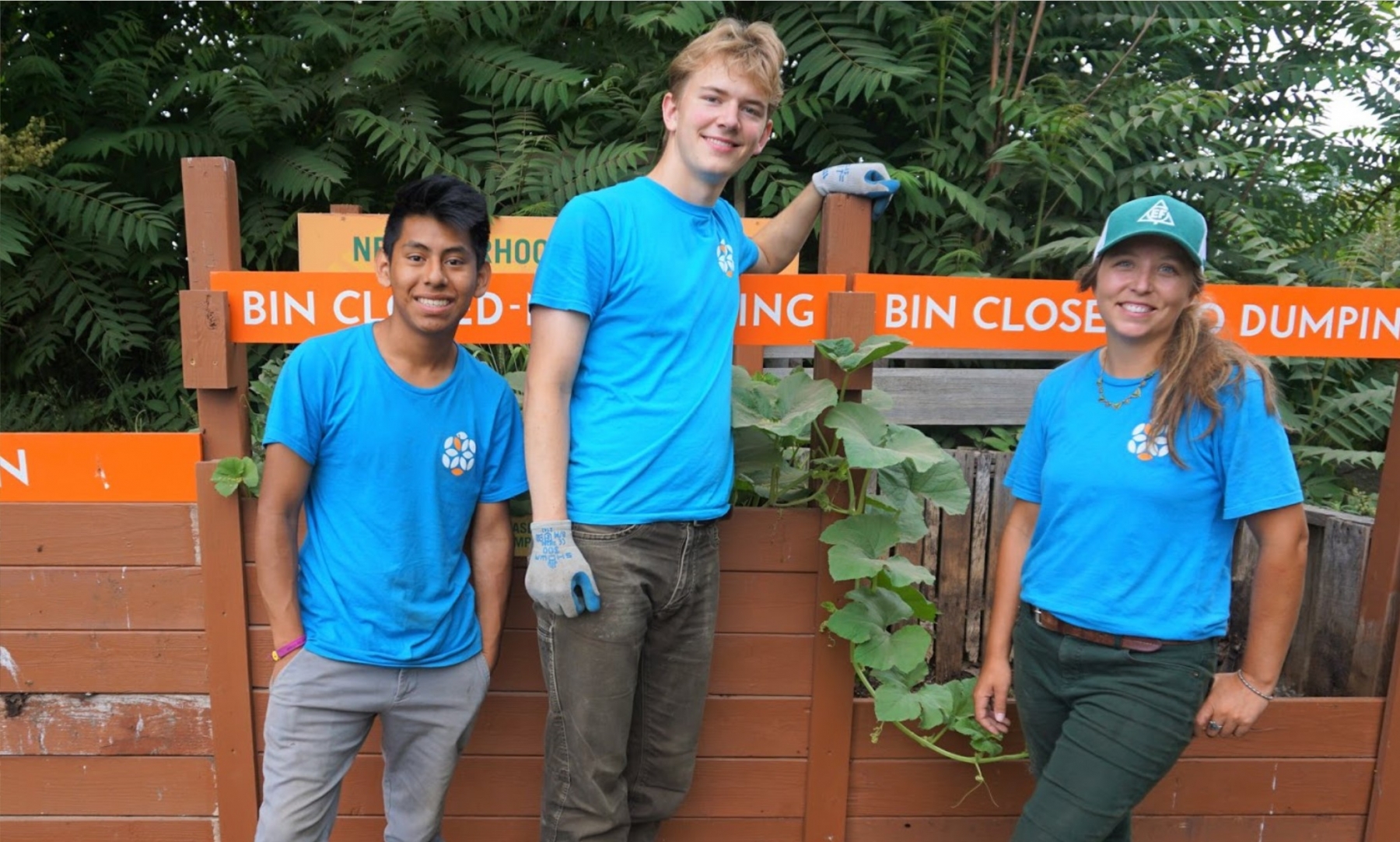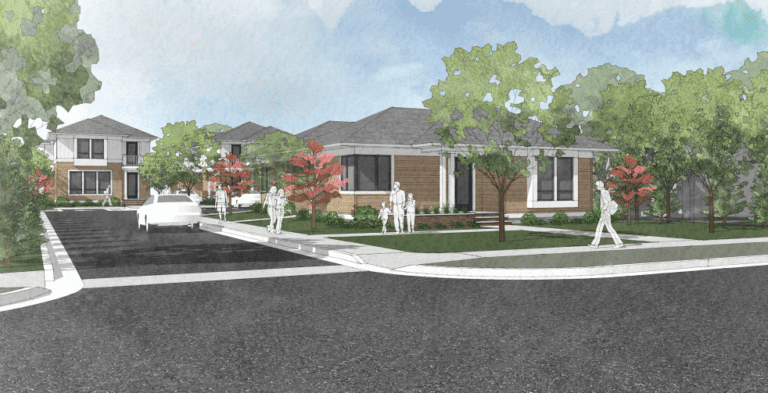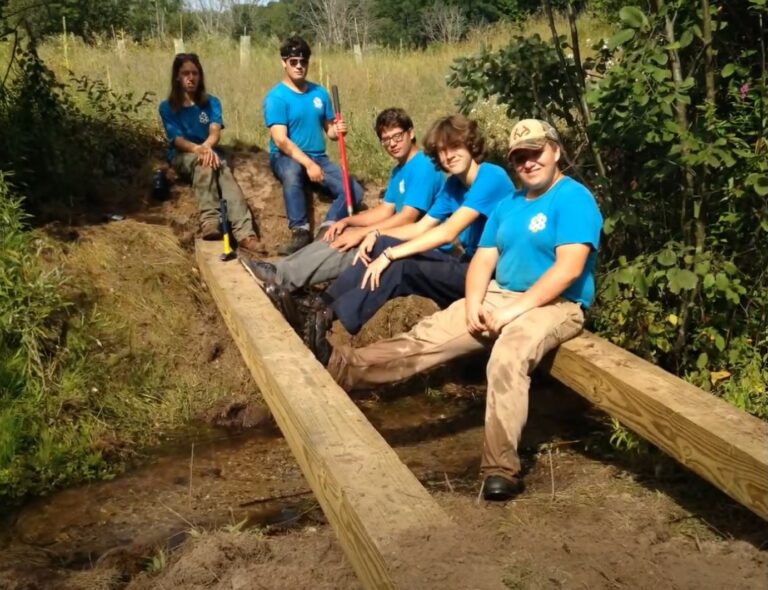
Above: AmeriCorps Summer Associate Dana Pflughoeft waters sprouting plants in the Giving Garden, sponsored by the Father Fred Foundation at the SEEDS Farm in Historic Barns Park.
As an economic system, a focus on ‘circular economy’ aims to eliminate waste and maximize use of resources by creating closed-loop systems that lower – or even better reverse – pollution and carbon emissions.
An example of a more circular food system begins at the Historic Barns Park where SEEDS Ecology & Education Centers partners with Father Fred and the farmers of Poesis to grow fresh produce that is harvested to feed local families. Working together, hundreds of pounds of fresh produce each season is grown and donated.

Meanwhile, at Oryana Natural Foods, community members are taking their food scraps to the compost pile where SEEDS EcoCorps members monitor and maintain the pile for the production of high-quality compost. Finished compost is donated to the community and to the SEEDS Farm at Historic Barns Park where it feeds the soil for the growth of new food, which is – once again – donated to local families.
About those food scraps… Did you know that it takes 25% of the world’s fresh water supply and an area the size of China to grow food that never gets eaten? Where that food waste ends up matters! Compared to the landfill, composting generates up to 86% fewer greenhouse gas emissions while generating economic value and local jobs.
Re-purposing food waste into compost can help solve hunger and reverse global warming. Partnerships like SEEDS + Oryana + Father Fred + Historic Barns Park illustrate how a shift in mindset can shed light on actions that solve multiple problems at once.
For more information about the work SEEDS does at the Historic Barns Park, visit our website HERE.




